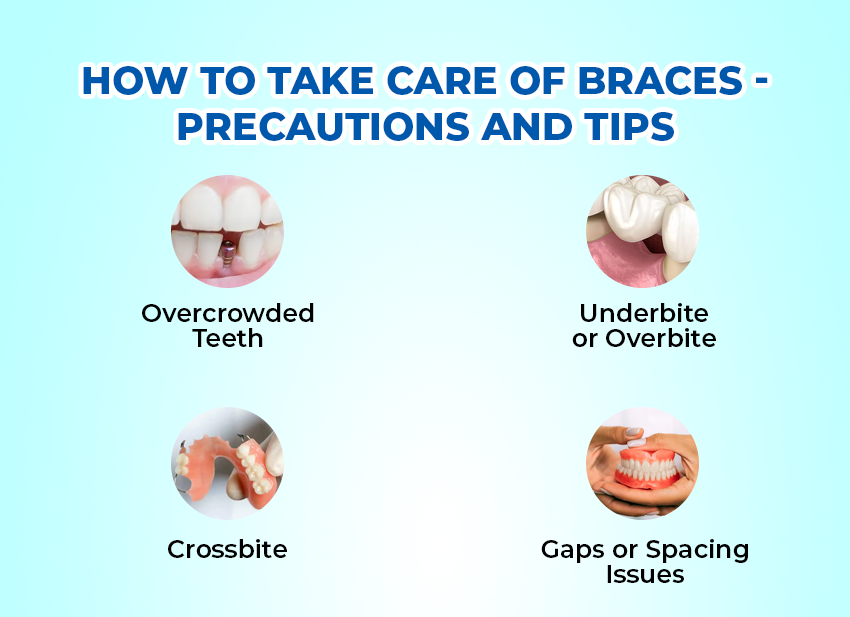Delhi Address:
36-A, Pocket 2, Sector 6, Behind Sector 6 Market, Dwarka, Delhi
Gurugram Address:
R2 136 M3M 65th Avenue Sector 65, Golf course extension road. Gurgaon Haryana 122101

Braces are a life-changing investment in your oral health and confidence. They play a crucial role in correcting misaligned teeth, improving your bite, and enhancing your overall smile. However, with this transformative journey comes the responsibility of proper care and maintenance. Neglecting your braces can lead to prolonged treatment times, discomfort, and even potential complications. In this comprehensive guide, we will explore the essential precautions and tips to help you caring for metal braces with ease, ensuring a smooth and successful orthodontic experience.

Braces are a versatile orthodontic treatment that can address a wide range of dental issues, including:
Overcrowded Teeth: Braces can help create space and align overcrowded or overlapping teeth.
Underbite or Overbite: By gradually shifting the jaw and teeth into proper alignment, braces can correct underbites and overbites.
Crossbite: This condition occurs when the upper and lower jaws are misaligned, causing the teeth to fit together incorrectly. Braces can realign the jaws and teeth for a proper bite.
Gaps or Spacing Issues: Braces can close gaps between teeth, providing a more uniform and aesthetically pleasing smile.
Maintaining braces is not just about dental hygiene; it is about making a braces care routine to ensure your orthodontic treatment is as effective as possible. Here are some essential braces care instructions:
Brush your teeth after every meal or at least twice a day with a soft-bristled toothbrush and fluoride toothpaste.
Floss daily to remove food particles and plaque from hard-to-reach areas, using a floss threader or specialized orthodontic flosser.
Taking care of your braces is not just a recommendation - it is essential for the success of your orthodontic treatment. By following these practical tips and precautions, you can help ensure a smoother, more effective treatment process. If you are searching for the best orthodontist for braces near me, you are at the right place. Remember, the best orthodontist in Delhi at Vital Dental Care is here to support you every step of the way. Trust us to provide the best dental treatments and care, helping you achieve the beautiful, healthy smile you deserve.
Q. How often should I brush my teeth if I have braces?
Ans. You should brush your teeth after every meal or at least three times a day to ensure that all food particles and plaque around the braces are removed.
Q. What foods should I avoid with braces?
Ans. Avoid hard, sticky, and chewy foods such as popcorn, nuts, hard candies, and gum. These can damage your braces and disrupt your treatment.
Q. What should I do if a bracket breaks or a wire comes loose?
Ans. If any part of your braces breaks or becomes loose, contact your orthodontist immediately. Avoid trying to fix it yourself to prevent further damage or discomfort.
Q. How important are regular visits to the orthodontist during treatment?
Ans. Regular visits are crucial for adjusting your braces and monitoring your progress. They help ensure your treatment is moving forward as planned and allows any necessary modifications.

